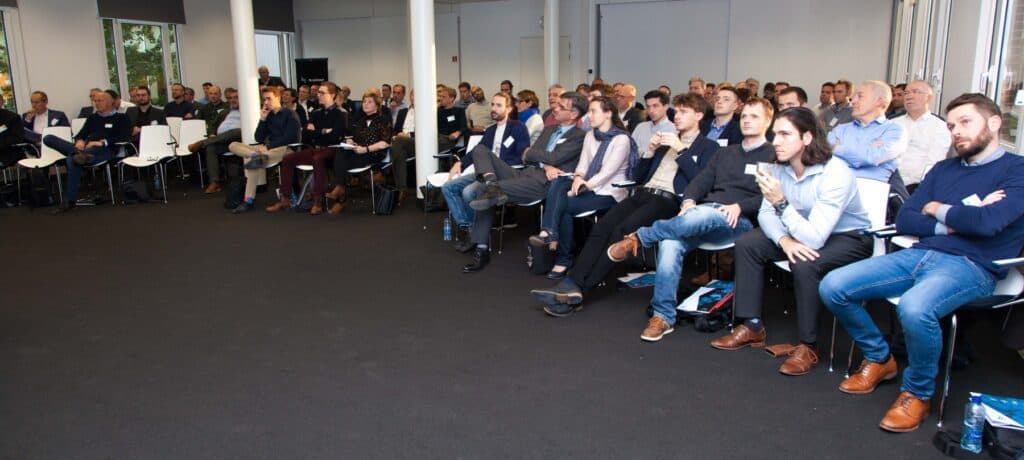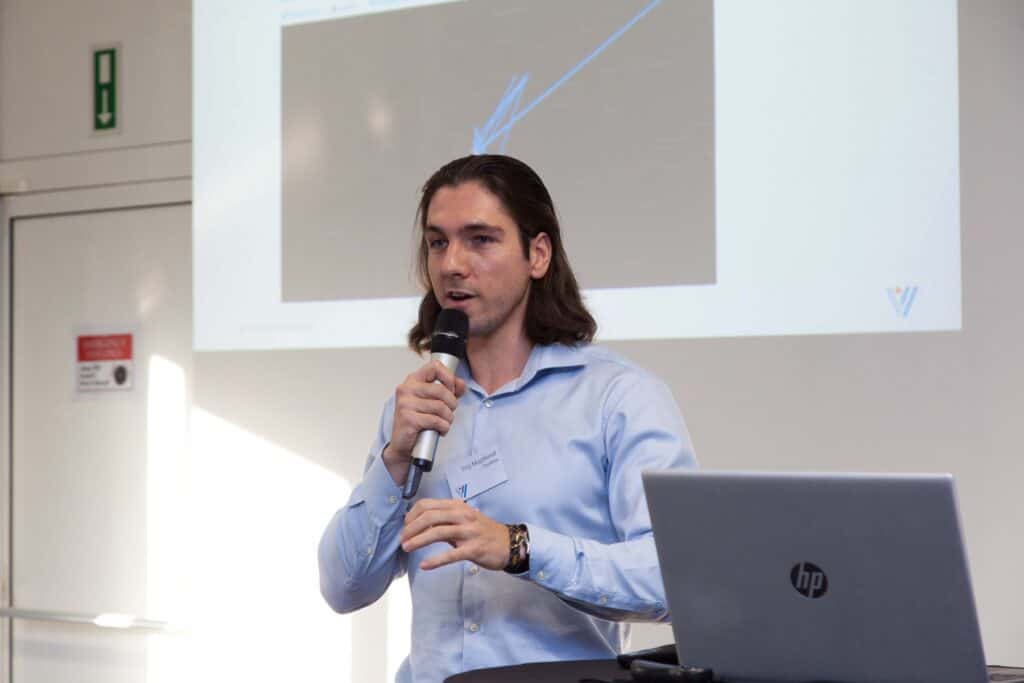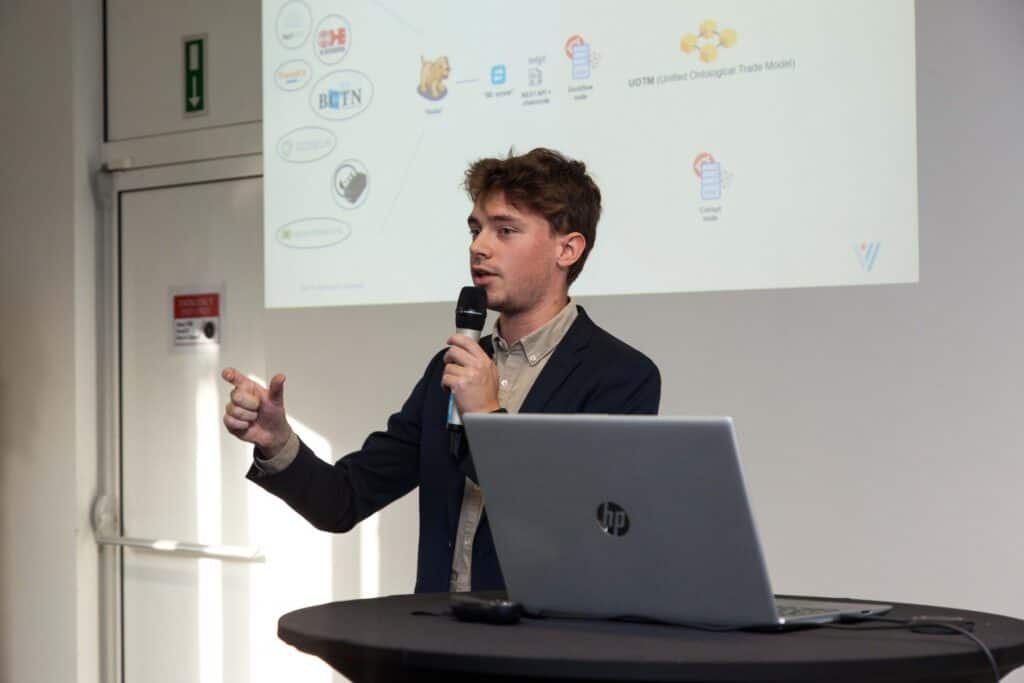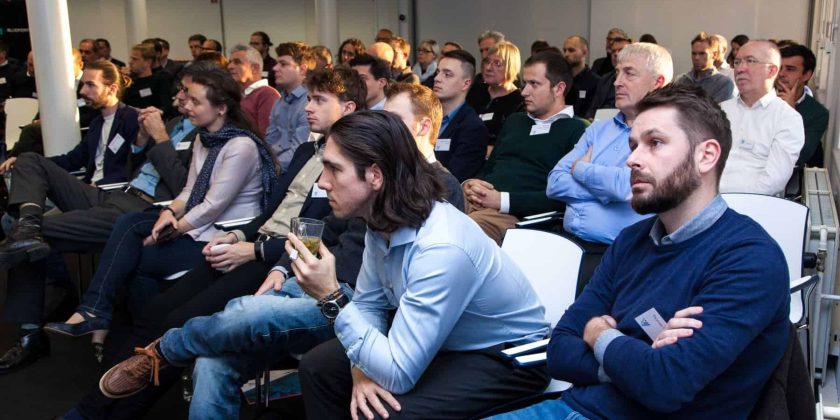In the ‘Blockchain in Supply Chains‘ project, Dockflow and Ledgit have mapped the opportunities and challenges of blockchain technology for VIL. This included development and testing of an open-source blockchain solution for track & trace and e-documents. Thirteen companies partnered in the project.
Blockchain technology is relatively new and for many businesses remains unexplored – which raises curiosity yet causes reluctance. The technology, however, is rapidly evolving. The further professionalization of the blockchain landscape is driving an increase in trust.

More transparent optimized supply chains
Blockchain technology is set to contribute to more transparent and further optimized supply chains. The possibilities offered by the distributed database of immutable blocks in terms of security, cost reduction and automation are indisputable.
Blockchain can validate the authenticity of data, yet the principle of “garbage in, garbage out” remains. Transparency of the supply chain and quality inspection at all stakeholders are necessary to guarantee the quality of data recorded in blockchain. IoT-sensors can help connect these physical goods with their transportation.
Legal quicksand
Despite the many benefits blockchain technology has to offer, much legal uncertainty remains. The lack of specific legislation and (for now) jurisdiction and legal literature places the promising technology on legal quicksand.

VIL application
This VIL-project aims to offer companies in the logistics and supply chain industry the opportunity to see beyond the blockchain hype and enable companies to make technology decisions in digitalization projects with a sound level of knowledge.
In the project, three potential applications for blockchains in supply chains were investigated: certificates, track & trace and e-documents. For the track & trace and e-documents use cases an application was developed to bring the possibilities of blockchain into practice. The track & trace features of the application aim to increase traceability of transport units in multimodal transport. The e-documents application provides a digital waybill for combined road-rail transport.

“The application is available to the entire industry as open-source software code through the VIL-website. It serves as a basis for further development in the participating companies and in the wider logistics industry. We hope this will stimulate and accelerate digitalization in supply chains”, says Eric Verlinden, Manager Transition Domains for VIL.
Thomas Havermans, Business Analyst Team Manager at H. Essers, one of the participating companies in the project: “This project is a good initiative launched by VIL al the right time. For H. Essers it proved very insightful to dig deeper into the possible logistics applications of blockchain technology. The added value of blockchain as a database against the cost of other databases still remains a challenge in a cost-driven industry. We are looking forward to further developments in this technology.”
Project participants are Aertssen Group, Atlas Copco Airpower, BCTN Meerhout, bpost, Colruyt Group, DP World Antwerp Holding, H. Essers, Gosselin Forwarding Services, Lineas, Molenbergnatie, Oracle, Randstad Group Belgium and Vinçotte.
This project is supported by VLAIO, Flanders Innovation and Entrepreneurship.
Full press release at VIL . The report and software can be consulted through the VIL website.

